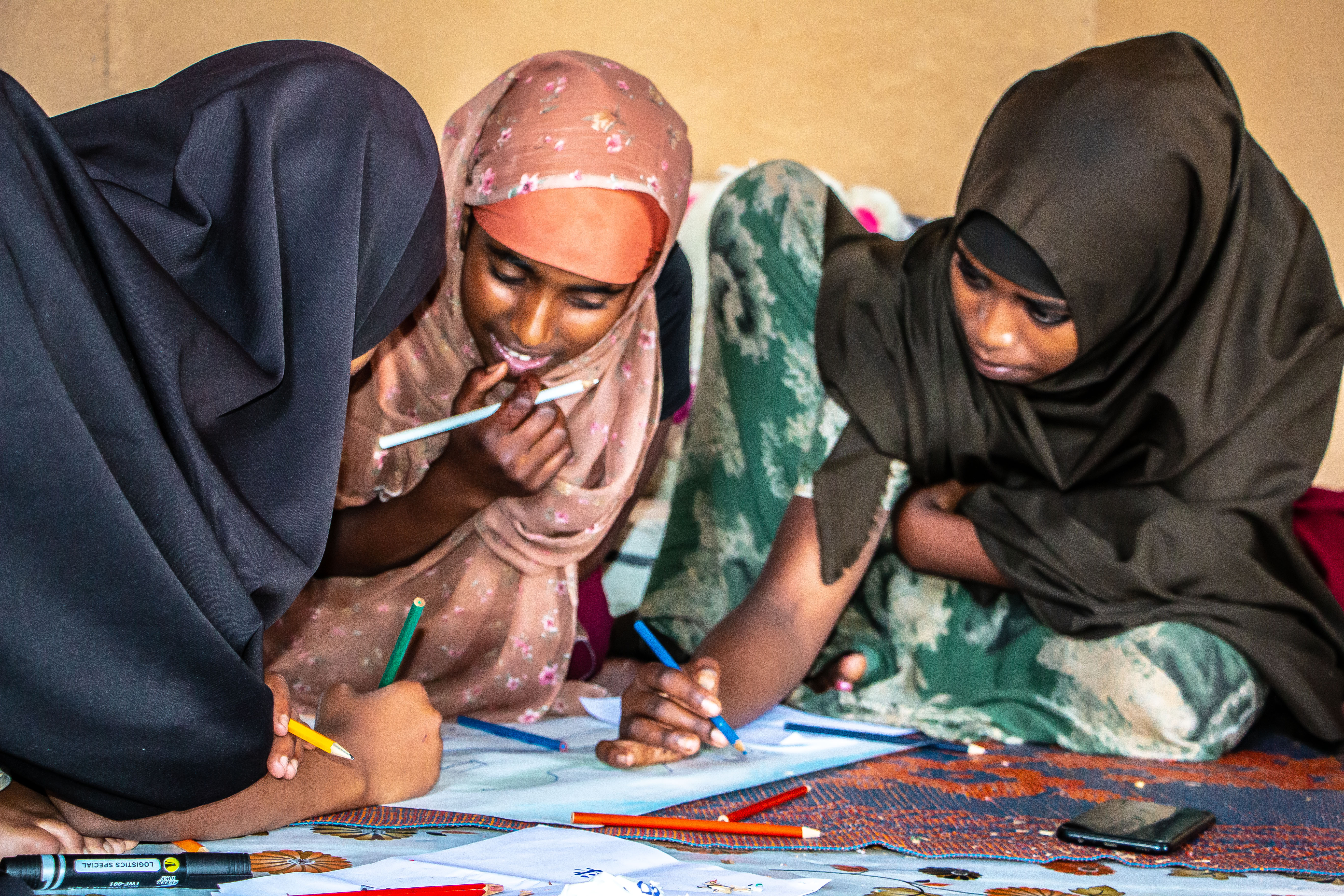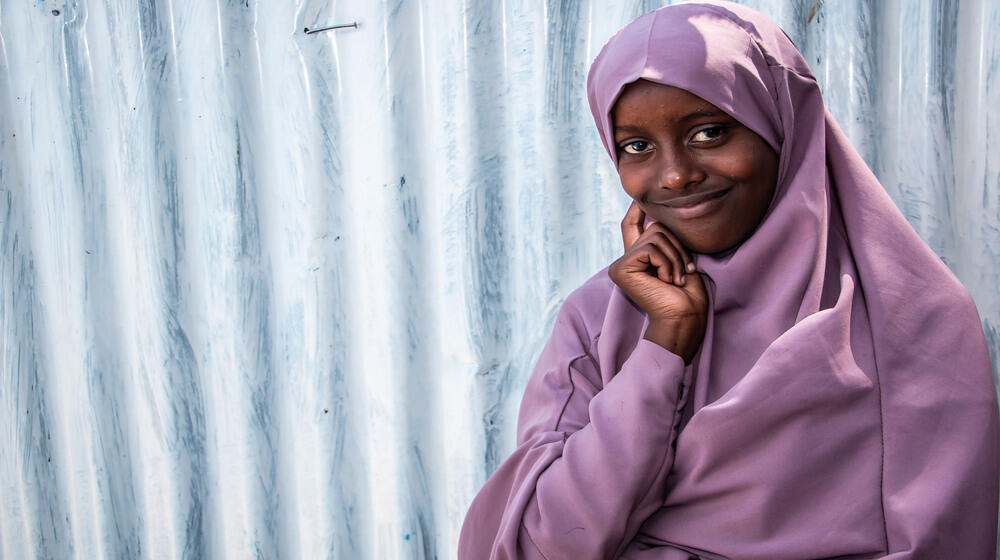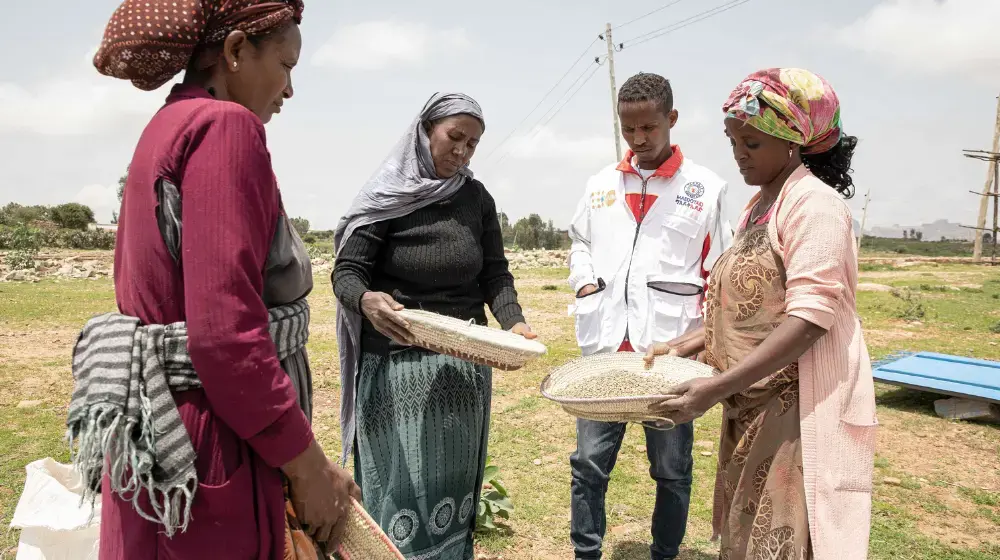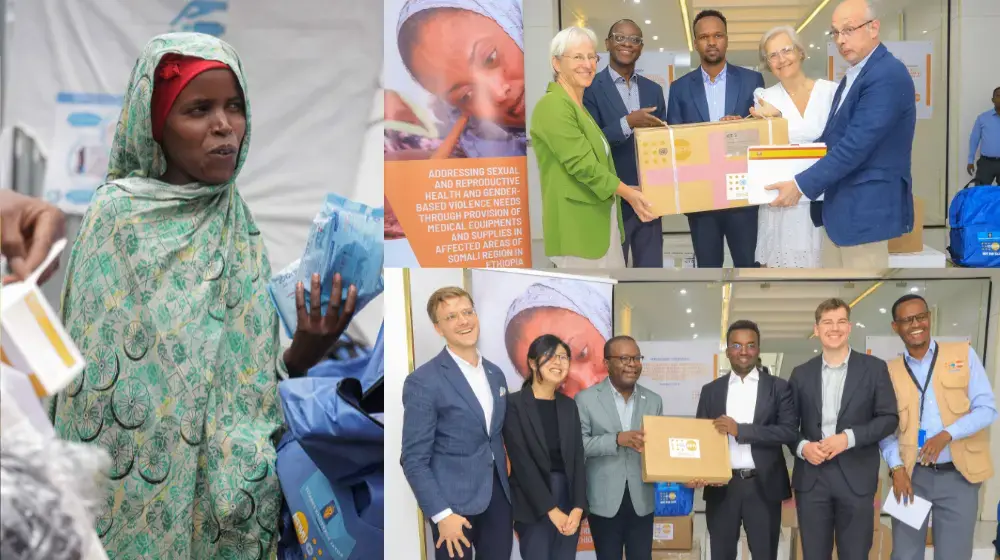CHINAKSEN, Oromia - “I love to come here. I feel safe and constantly learning new things that I can use then to help other friends”, says an enthusiastic Arabat from her experience at the UNFPA-supported Women and Girls’ Friendly Space in Chinaksen, Oromia.
Arabat, an eleven-year old student, is one of the many girls benefiting from the ‘Girls Shine Programme’ - a model and resource package that seeks to support, protect, and empower adolescent girls in humanitarian settings.
In the Oromia region, over 3.4 million people affected by the drought are in dire need of humanitarian assistance. In East and West Hararghe Zones, 24 woredas are severely drought-affected with an estimated 1.3 million people in need of humanitarian assistance.
“I help my friends when they have their periods at school. I explain what they have to do and where to go”, explains Arabat when asked about the knowledge and skills acquired last year at the Friendly Space.
Women and girls are disproportionately affected during conflict and climate-related shocks. Displacement and reduced household resources and income exposes them to greater risks of gender-based violence, sexual exploitation and abuse. Child and forced marriage often spike during crises as protection mechanisms fail and households use it as a coping mechanism.
Ending child marriage by empowering girls
In Chinaksen, 300 girls drop off from school and were early married in 2022 according to local authorities. “We had the case of a school that had to close because there were no girls. They were all married”, says Ms. Nesra Amdi, GBV Team Lead at the Women and Children Office.
Women and Girls’ Friendly Spaces are a key strategy for women and girls’ empowerment in the fight against early and child marriage. They provide social support, skills training, critical information on sexual and reproductive health and rights, and access to safe multi-sectoral GBV response services.
“I advised one of my friends about the consequences of early marriage. After three days, she got divorced and the family sent her back to school. She is very happy now”, says Arabat to UNFPA.
“Girls feel free to speak and report cases and find help, including during the awareness sessions created for the community and adolescents,” says Amina Ali, GBV Manager at International Medical Corps and the Coordinator of the Safe Space supported by UNFPA. ”It is helping to counteract child marriage”.
Strengthening protection across Ethiopia
In January 2023, UNFPA supported 17 Women and Girls’ Friendly Spaces across conflict and drought-affected regions reaching nearly 5,000 women and girls with integrated GBV and SRH services and skill building activities. Distribution of dignity kits has also been undertaken and community outreach and information sessions organized to promote the use of services.
In addition, 21 One-Stop Centers are currently supported in the provision of comprehensive GBV prevention and response services, including mental health and psychosocial support to vulnerable women and girls. Critical reproductive health supplies, medicines, and equipment have also been provided and frontline service providers capacitated.
Despite all efforts to increase the coverage of gender-based violence services, much support is needed to respond to the needs of women and girls affected by conflict and climate-related shocks in the region.
The UNFPA Humanitarian Response Appeal 2023 is calling for nearly USD 45 million to respond to the protection and health needs of women and girls across crisis-affected regions in Ethiopia. Girls like Arabat need our support. To date, only 47% of the appeal has been received.





